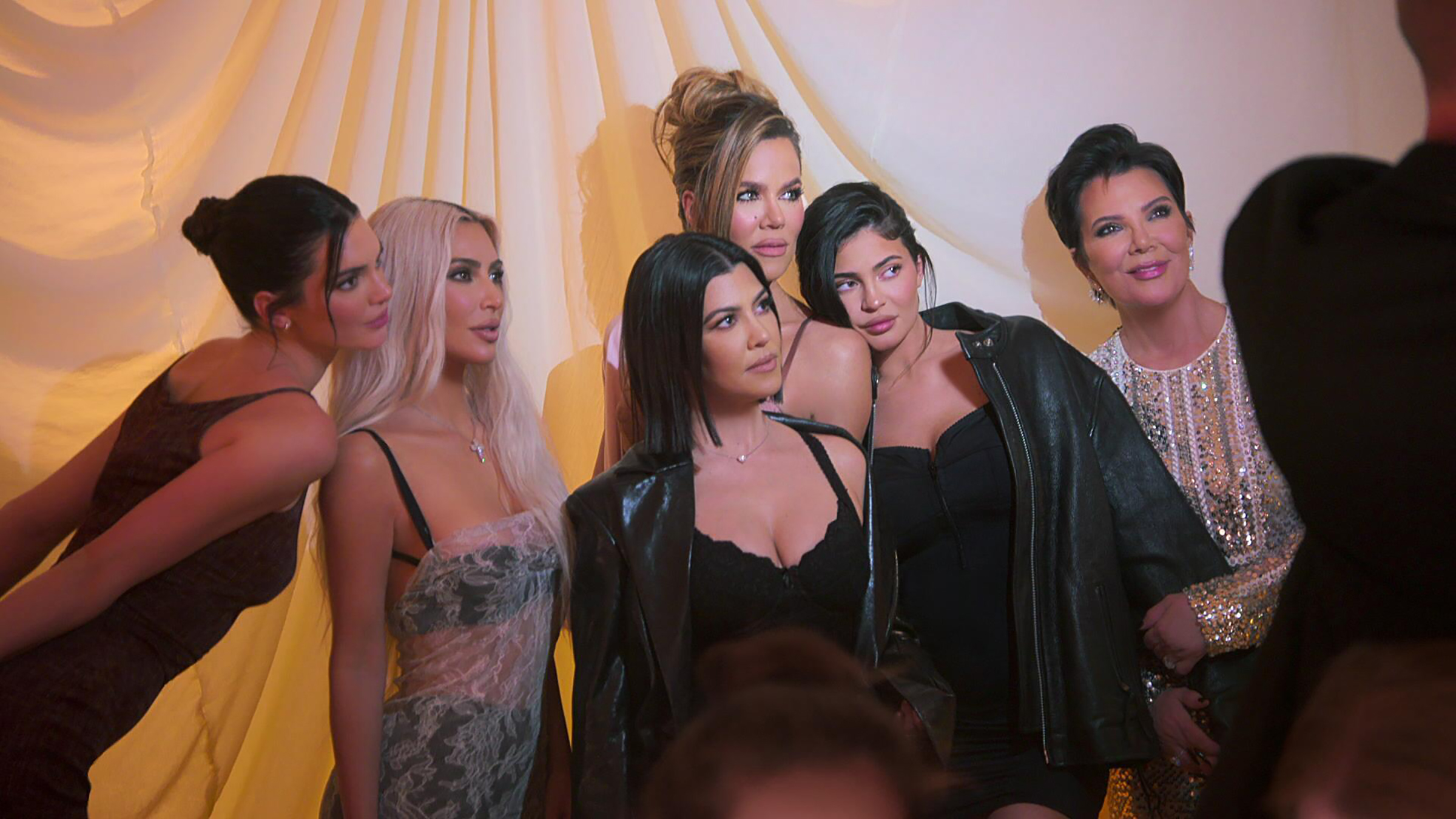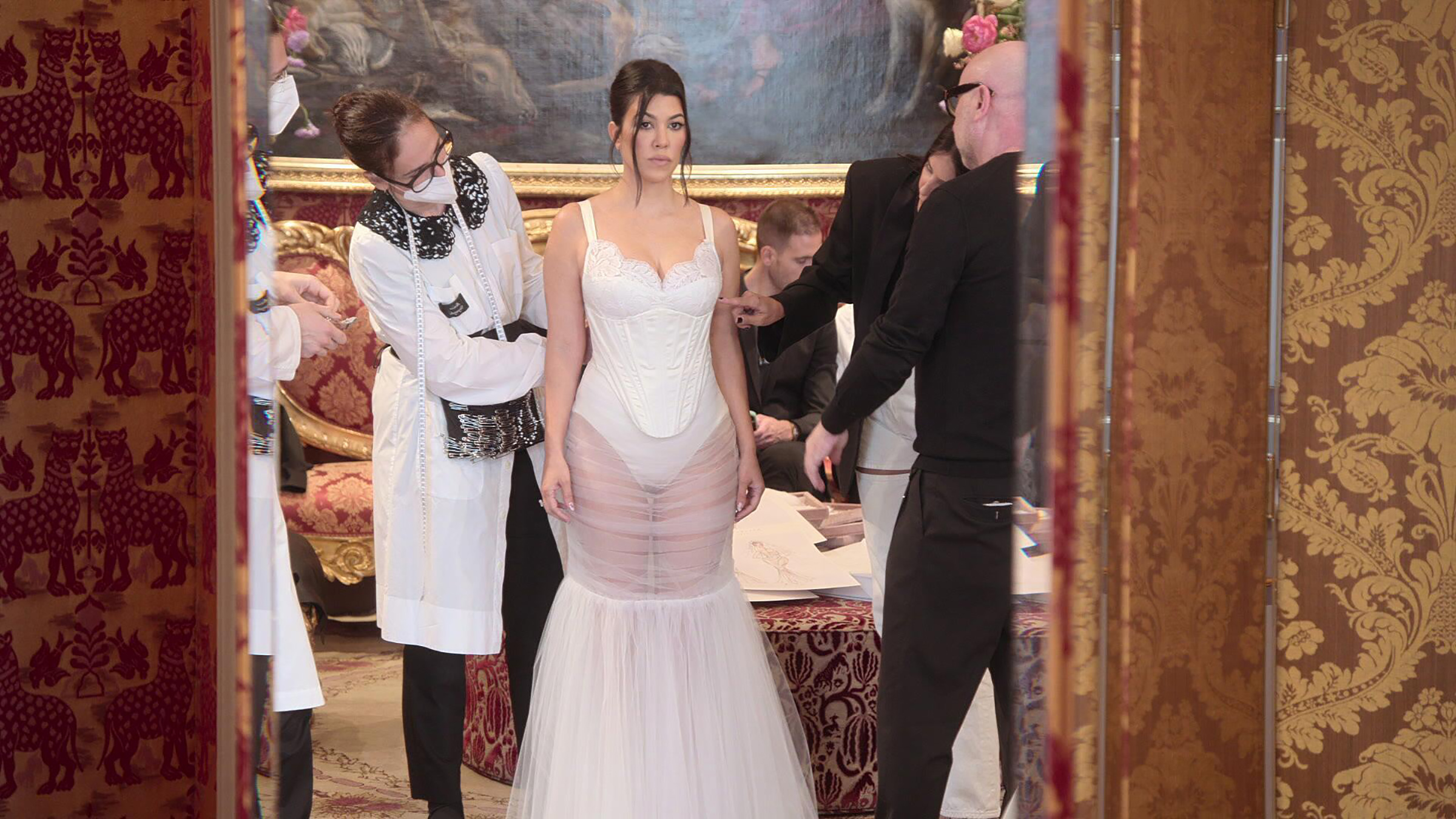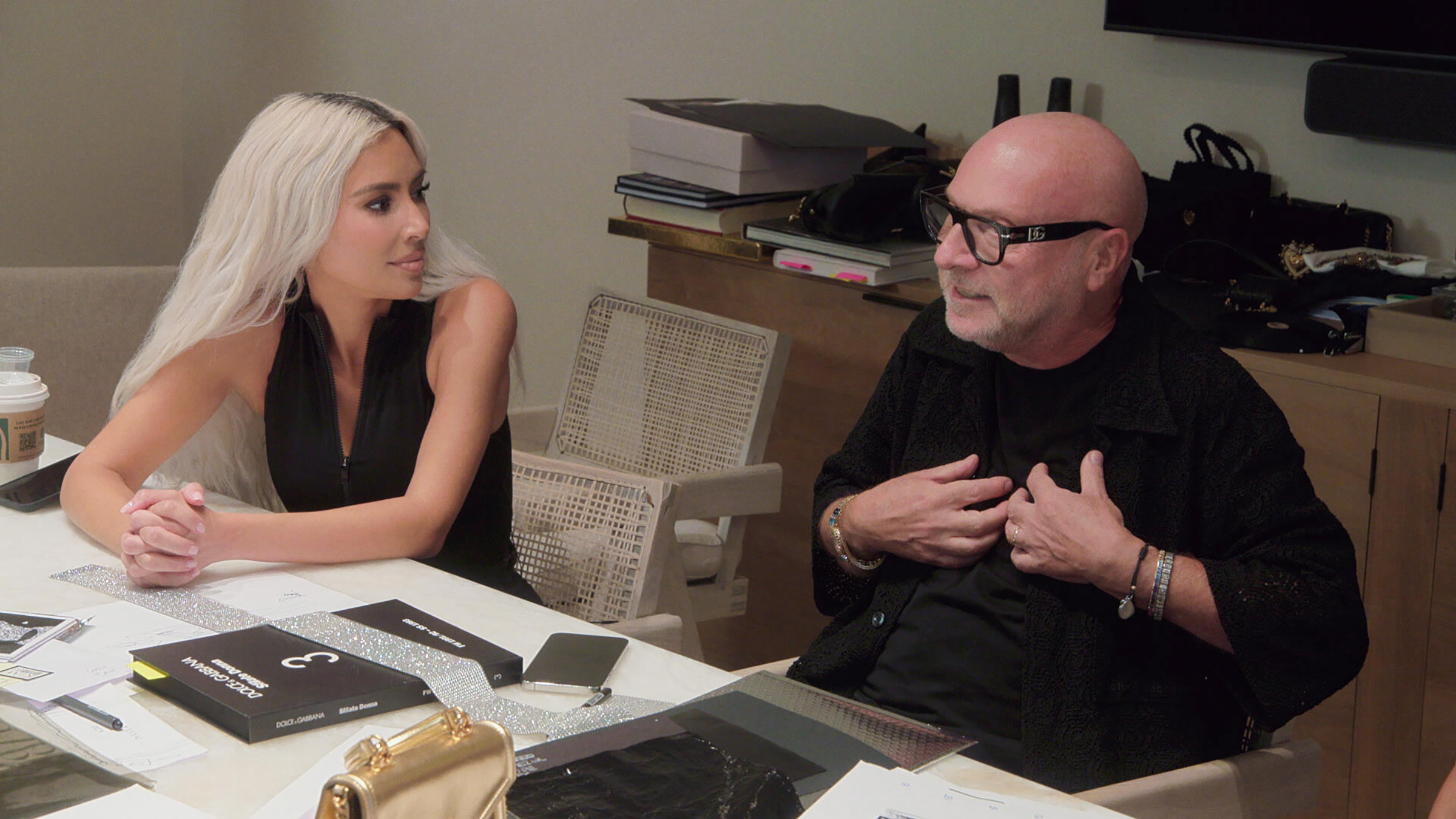
These are independent reviews of the products mentioned, but TIME receives a commission when purchases are made through affiliate links at no additional cost to the purchaser.
Throughout the 16 years that the Kardashian and Jenner family has appeared on our television screens—first on E!’s Keeping Up With the Kardashians and now on Hulu’s The Kardashians—the overarching message they’ve put forth has always been that family comes first. But viewers have long caught on to their equally (if not more) important priority: growing their business empire. While the original show launched in 2007 as a showcase for a “modern Brady Bunch,” it also served as a fledgling platform for the Kardashian sisters’ clothing boutiques and small-potatoes endorsement deals. Now, momager Kris Jenner and her children boast not only multiple reality series, but also several fashion, beauty, wellness, and alcohol brands.
The Kardashian and Jenners have always been their own biggest assets as entrepreneurs: they have long offered up their private lives for public consumption, gaining in return a loyal following—and a massive customer base. But there’s a cost to blending business opportunities and personal relationships, and it may never have been more apparent than it is in the current season of The Kardashians.
The conflict at the center of season 3 is one between Kim and Kourtney Kardashian. Their fight may seem trite: Kim creative directed a Dolce & Gabbana runway show that drew from the fashion house’s ’90s archives, and this felt like a violation to Kourtney because less than a year earlier she collaborated on her wedding with D&G, outfitting her family in many looks pulled from the same archive. In Kourtney’s estimation, Kim heartlessly capitalized on her wedding for a business deal; in Kim’s view, Kourtney’s concerns were petty and she overlooked the personal and financial value of the opportunity for a sister whose career she should support.
More from TIME
Read More:The Kardashians Is One Big Marketing Opportunity for the Family’s Brands
Season 3 of The Kardashians, which premiered on May 25, has been building toward a confrontation between the two sisters. Each has vented to other members of the family, but they had yet to speak to one another directly about the conflict—until episode 7, which dropped on July 6. In a brief, charged scene, Kim visited Kourtney to talk things out. Their stilted yet emotional conversation made clear that beneath their squabble surrounding Dolce & Gabbana is a deeper issue, one that speaks to the consequences of blending work and family—and one that can’t be resolved with a weak apology.

Kim and Kourtney have a long history of conflict
As the two eldest sisters, Kim and Kourtney have long butted heads, and over time their priorities have steadily diverged. Kim, long considered the main character of the reality show, has chased fashion editorials and high-profile collaborations, created multiple fashion and beauty businesses, and generally thrived in the spotlight. Kourtney has increasingly focused on motherhood and her romantic relationship, and strived to foster an identity and a life away from the cameras. After Kourtney took a step back from filming in later seasons of Keeping Up, rumors circulated among fans that one of the reasons the show ended was because Kourtney refused to participate.
In recent years, their conflicts have frequently been related to their family’s attitude toward business and particularly Kim’s perspective on work and the importance of every sister contributing to the family empire. Kim, who prides herself on her work ethic and being an entrepreneur (and who also infamously advised women to “get your f-cking ass up and work”) has in the past diminished Kourtney’s feelings by saying that she was “not special” for continuing to work while pregnant. Meanwhile Kourtney, a strong proponent of “boundaries,” has picked fights with Kim over “triggering” her and not respecting her work-life balance. Memorably, the two had a physical fight in season 18 of Keeping Up after Kim alleged that she works harder than Kourtney does.
In the recent Kardashians confrontation, Kourtney reiterated to Kim that she is less concerned with the family’s business ventures than she is with protecting her boundaries and the life she has built for herself with her husband Travis Barker and their blended family. “There’s something about being content and happy with what you have and not feeling like you need more,” she said.
The trouble with mixing business and family affairs
Though the specifics of Kim and Kourtney’s Dolce & Gabbana fight are far from relatable, the underlying themes are some that can impact families of all backgrounds. Sociologist Dalton Conley, the author of The Pecking Order: A Bold New Look at How Family and Society Determine Who We Become, sees their conflict through the lens of economics—a common source of tension within families.
“Economics is a big reason for sibling conflicts, even in families where they’re not famous, trading off the family name, or having a family business,” Conley says, noting that American economic inequality is commonly experienced within families: adult siblings can be of vastly different socioeconomic status from one another, and the lifestyle differences and contrasting priorities that result can foster conflict.
Read More: How Sibling Rivalry Can Help You Succeed
Conley says this dynamic came into play historically as a result of industrialization. Before that time, family businesses were more common, and entire households and extended families often functioned as one economic unit. The separation between people’s financial and personal lives was less clearly defined than it is for most today.
Conley draws a connection between the Kardashians and fictional families whose business dealings cross into their personal relationships. “From King Lear and Shakespeare all the way to Succession, the drama is because in the ideal, modern capitalism, family is totally separate from business,” Conley says. Tensions arise when these realms mix, because the way parents and children, siblings, and other family members interact with each other is generally meant to be different from how employers, employees, and colleagues do. “There are very different norms of behavior and expectations of altruism and unconditional love,” he says.
Clashing values

The Kardashians and Jenners have made work a major focus of their family dynamics, particularly as their fame—and economic prospects—have grown. In early seasons of the show, before Jenner and her daughters attained A-list status, they banded together as outsiders aspiring to ascend to elite circles. MJ Corey, a writer and researcher who theorizes about the Kardashians on social media under the handle @kardashian_kolloquium, says that the united family narrative put forth by the Kardashians and Jenners has usually benefitted them.
“From telling us how their family has overcome lots of personal challenges before fame, like losing their father suddenly to global fame and all of its pressures, they sell an image of a family that is prepared for whatever comes their way,” Corey says, nodding to the importance with which “family values” have been treated throughout the history of American media. “When it comes to actual conflicts, like with the business—which appears to be as important to them as family—the family image has only helped them.”
Read More: Keeping Up Is Ending. But the Kardashians’ Exploitation of Black Women’s Aesthetics Continues
But that image has begun to warp. And Kim and Kourtney’s clashing perspectives on the Dolce & Gabbana drama—Kim’s focus on the importance of the opportunity for her personal brand and business, juxtaposed with Kourtney’s insistence that her feelings should be worth more than a paycheck—is a meaningful example. Kim is all about her role in the spotlight. Kourtney is all about her private life. And when the growth of the family business requires active participation and sacrifices from all members, these differences spell a problem. While Kim offered a (seemingly reluctant) apology to Kourtney in the episode 7 confrontation, the sisters did not seem to find a way to see eye to eye—the likelihood that similar conflicts will arise seems high. In the end it was Kourtney who offered the most potent line in the scene, one that will linger over the family as it continues down this path: “You chose money over me.”
More Must-Reads From TIME
- The 100 Most Influential People of 2024
- Coco Gauff Is Playing for Herself Now
- Scenes From Pro-Palestinian Encampments Across U.S. Universities
- 6 Compliments That Land Every Time
- If You're Dating Right Now , You're Brave: Column
- The AI That Could Heal a Divided Internet
- Fallout Is a Brilliant Model for the Future of Video Game Adaptations
- Want Weekly Recs on What to Watch, Read, and More? Sign Up for Worth Your Time
Write to Cady Lang at cady.lang@timemagazine.com